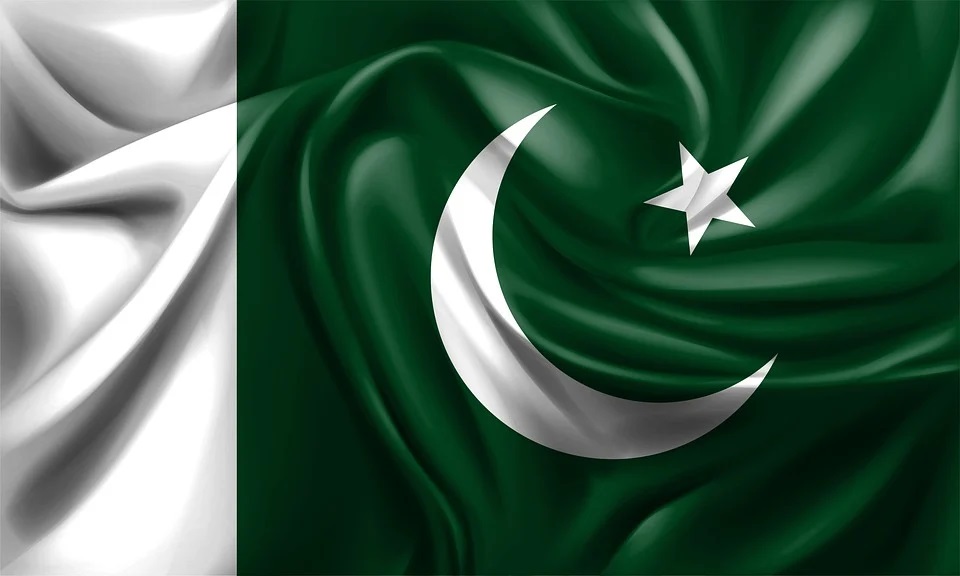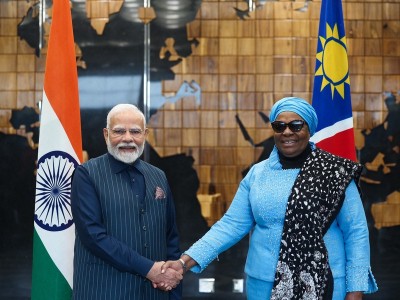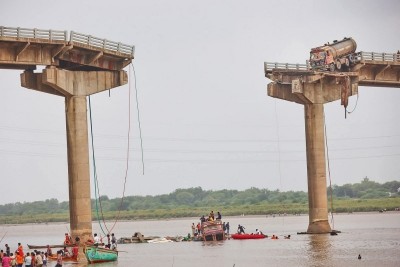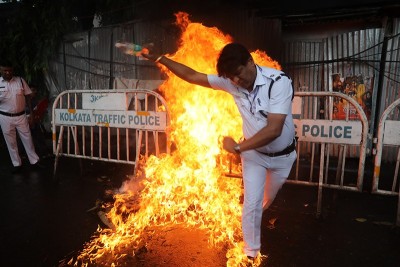 TTP
TTP
The Tehreek-e-Taliban Pakistan has declared an indefinite ceasefire. A TTP statement issued on June 2 reads,
As the talks between TTP and the grand Pakhtun Jirga, particularly tribal elders and religious clerics sent by government of Pakistan [to Kabul], are ongoing for the last two days… During the negotiations a significant breakthrough has been made. As a result, the TTP leadership has declared an indefinite ceasefire...
Though the Government has not made any comments about the ceasefire declaration, on June 4, 2022, Pakistan's Information Minister, Maryam Aurangzeb disclosed,
Peace talks with outlawed TTP [Tehreek-e-Taliban Pakistan] started in October 2021 at government level. The Afghan government is facilitating them. These talks included government and military representatives.
Significantly, a ceasefire with the Hafiz Gul Bahadur (HGB) group, a former constituent of the TTP that broke with the parent formation in July 2008 as it wanted to focus on the Afghan theatre, was agreed upon on October 1, 2021, and lasted till October 21, 2021. Similarly, a ceasefire with TTP, agreed upon on November 5, 2021, lasted till December 5, 2021. Subsequently, on April 30, 2022, TTP announced an 11-day ceasefire on account of Eid-ul-Fitr. This was further extended till May 30, 2022.
Though no further details about the talks are available, according to local journalists, TTP's major demands include:
Withdrawal of troops from the erstwhile Federally Administered Tribal Areas (FATA) area;
Reversal of the merger of FATA with Khyber Pakhtunkhwa, i.e., to nullify the 25th Constitutional Amendment;
Enforcement of the Shariah Nizam-e-Adl Regulation (SNAR) 2009 in the Malakand division; " Amnesty to cadres and release of prisoners from custody.
On May 31, 2018, after receiving assent from the then President Mamnoon Hussain the 25th Constitutional Amendment came into force, resulting in the merger of FATA and the Provincially Administered Tribal Areas [i.e., the Districts of Chitral, Dir and Swat (including Kalam), the Tribal Area in Kohistan District, Malakand Protected Area, the Tribal Area adjoining Mansehra District, and the former State of Amb, into the existing Khyber Pakhtunkhwa Province.
SNAR 2009 was passed on April 16, 2009. The regulation was meant to provide for Nifaz-e-Nizam-e-Sharia'h [Order of Islamic Justice] through Courts in the Provincially Administered Tribal Areas of Khyber Pakhtunkhwa, except the Tribal Area adjoining Manshera District and the former State of Amb. After the 25th Constitutional Amendment, 2018, by which Article 247 was removed from the Constitution, SNAR 2009 ceased to exist.
Though the Government has not publicly revealed its stand on the issue of demerger, at the time of the merger it was argued that it was an effort to 'mainstream' governance in the tribal areas and to control lawlessness there. Notably, the 2016 FATA Reforms Committee, which recommended the FATA-KP merger, noted in the section named 'The Urgency for Reforms,'
In the aftermath of horrendous act of terrorism at the Army Public School, Peshawar, on 16th December 2014, there was a national uproar that prompted the Government to move against terrorism in a more forceful and integrated manner. The National Action Plan (NAP) against terrorism was launched by the Prime Minister on 25th of December 2014. FATA has figured prominently in the narrative of terrorism and has been described as the most dangerous place on earth and the factors that led to the lawlessness and the absence of writ of the Government were critically felt. Thus, reforms in FATA were designated as a priority area under the National Action Plan against terrorism.
The situation in the region still remains alarming and, consequently, it will not be easy for the government to justify its decision if it agrees for the demerger. Such a demerger, moreover, will be difficult, as it will require another Constitutional Amendment, which is not possible in the present political situation.
Though there has been no reaction on the issue of enforcement of the SNAR 2009 in the Malakand Division, reports indicate that government might have agreed to concede this demand.
In turn, the Pakistani state wants TTP to stop its attacks on Pakistani soil and to demobilize its fighters completely. However, these objectives are likely to be a challenge, if previous agreements with the terrorist outfits and their leaders are any indication. These include three written agreements – the Shakai Peace Agreement (with Nek Muhammad Wazir on April 2004), the Srarogha Peace Agreement (with Baitullah Mehsud in February 2005) and the Swat Agreement (with Maulana Fazlullah in May 2008). Also, undocumented/verbal agreements with ‘commander’ Hafiz Gul Bahadar (active in North Waziristan) in 2008, ‘commander’ Faqir Muhammad (active in Bajaur Agency) in 2009 and the Lashkar-i-Islam (active in Bara and Jamrud region in Khyber Agency) in 2009. Every one of these agreements proved short-lived and did not result in an enduring peace.
Significantly, back in 2012, Daud Khattak, senior editor with RFE/RL's Mashaal Radio, while writing for Combat Terrorism Centre under 'Reviewing Pakistan's Peace Deals with the Taliban,' concluded,
By reviewing Pakistan's various peace agreements with Taliban militants, several commonalities become evident. All of the agreements were signed from a position of government weakness, and thus the militants were able to achieve significant concessions. The government never enforced its demands of disarmament or the surrendering of foreign militants.
All the leaders mentioned above joined TTP when it was formed in December 2007.
Indeed, despite the ongoing ceasefires, TTP launched Operation 'Al-Badar' on April 2, 2022. In the 70 days since its launch (data till June 12, 2022), Pakistan has recorded 158 fatalities (35 civilians, 78 SF personnel and 45 terrorists).
Despite this discouraging experience, Islamabad is continuing with peace talks under Chinese pressure to buy peace with TTP. A June 7, 2022, report quoted an unnamed senior Pakistani politician from the ruling Pakistan Muslim League-Nawaz (PML-N) accepting that China was exerting pressure on Pakistan to find “peace” with TTP so that TTP’s “war on the China-Pakistan Economic Corridor” ends. He added, further, “For Pakistan, it is incredibly important to restore Chinese confidence in Pakistan – especially Pakistan’s ability to provide ample security to Chinese personnel.”
However, efforts to buy peace with TTP will not ensure peace in the country, asthe Hafiz Gul Bahadur (HGB) group, which is influential in tribal areas, have already failed. Reports indicate that a senior ‘commander’ of the HGB group, visited Peshawar and Islamabad in August 2021 to meet senior Pakistani security officials, leading to the release of 20 of the group’s members by the government. Later, on October 1, 2021, the Shura Mujahideen of North Waziristan headed by HGB announced a ceasefire for 20 days. However, on October 22, 2021, HGB’s Shura, based in the Pasa Mela area of Spera in the Khost Province of Afghanistan, announced the termination of the ceasefire, claiming no headways in the talks. There was no response from the Government regarding the HGB group’s assertion. The majority of members of the group, closely linked to the Haqqani network, are presently based in Afghanistan’s Kunar Province.
Indeed, the HGB group, like TTP, regrouped after the return of the Afghan Taliban’s takeover in Kabul. The group has engaged in increased violence after the failure of the talks. According to the SATP database, HGB group-linked incidents had resulted in 30 fatalities (two civilians, 17 SF, and 11 terrorists) since October 21, 2021, (data till June 12, 2022). During the corresponding period preceding, there were no killings in HGB group-linked incidents.
Meanwhile, there is a risk that the resurgent HGB group may even attract dissatisfied cadres and leaders of TTP. Member of the National Assembly (MNA) from North Waziristan, Mohsin Dawar told Radio Free Asia, "If the TTP foot soldiers won't benefit from the impending deal, they are likely to switch over to Bahadur's group…"
There are also strong apprehensions that dissatisfied TTP cadres may move to the Islamic State-Pakistan Province (IS-PP) and Islamic State-Khorasan Province. IS-PP, in its Yalgar magazine released on December 5, 2021, warned TTP of not repeating the mistakes of the Afghan Taliban, as “democracy and monotheism can never stand together.” While IS-KP has its influence limited to Peshawar city and Bajaur District in KP, the IS-PP has its presence in the remaining areas.
The possible surrender of the Pakistani State to a radical terror movement based in the tribal areas once again will only embolden such groups and may have far-reaching consequences, including the probability of the further Talibanization of the country.
Support Our Journalism
We cannot do without you.. your contribution supports unbiased journalism
IBNS is not driven by any ism- not wokeism, not racism, not skewed secularism, not hyper right-wing or left liberal ideals, nor by any hardline religious beliefs or hyper nationalism. We want to serve you good old objective news, as they are. We do not judge or preach. We let people decide for themselves. We only try to present factual and well-sourced news.







